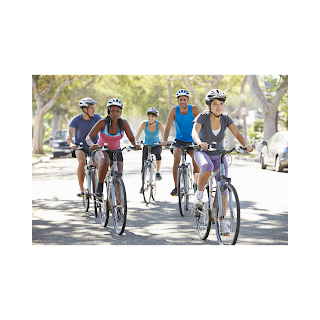Why Cycling Is the Perfect Activity for Health, Happiness, and the Planet
Cycling is more than just a way to get from point A to point B. It's a fun, low-impact activity with powerful benefits for your body, mind, and the environment. Whether you're a seasoned rider or just starting out, cycling can help you stay fit, reduce stress, and even shrink your carbon footprint. Here’s why you should consider hopping on a bicycle—today!
🚴 Physical Health Benefits of Cycling
1. Boosts Heart Health
Cycling gets your heart pumping, improves circulation, lowers blood pressure, and reduces your risk of heart disease.
2. Helps with Weight Loss
It’s a calorie-burning, metabolism-boosting exercise—without the harsh impact of running or high-intensity workouts.
3. Gentle on the Joints
Because it's low-impact, cycling is easy on knees, hips, and ankles. It’s ideal for seniors or anyone with arthritis or joint pain.
4. Builds Strength and Endurance
Pedaling targets your legs, core, and even your upper body. The more you ride, the stronger and more resilient your muscles become.
5. Improves Balance and Coordination
Staying upright on two wheels helps develop your balance, especially important as we age to prevent falls.
🧠 Mental Health Benefits
1. Reduces Stress and Anxiety
A ride in the fresh air can calm your mind and help lower cortisol (stress hormone) levels.
2. Elevates Your Mood
Cycling releases feel-good endorphins that help fight depression and improve emotional well-being.
3. Sharpens Brain Function
It boosts memory, focus, and cognitive clarity by increasing blood flow to your brain.
4. Enhances Sleep
Regular exercise like cycling can help you fall asleep faster and enjoy deeper, more restful sleep.
🌎 Environmental Benefits of Cycling
1. Zero Emissions = Cleaner Air
Every ride you take instead of driving helps cut down on greenhouse gas emissions.
2. Less Traffic, Less Noise
Fewer cars on the road means less congestion and quieter, more peaceful neighborhoods.
3. Reduces Fossil Fuel Dependence
Cycling uses your own energy—not gasoline. That means less reliance on oil and a more sustainable lifestyle.
✅ Tips for Safe and Enjoyable Cycling
-
Always wear a helmet that fits properly.
-
Follow the rules of the road—just like a car.
-
Use hand signals to communicate with drivers.
-
Wear bright, reflective clothing and use lights if riding in low light.
-
Hydrate before, during, and after your ride.
-
Keep your bike in good shape with regular checks on tires, brakes, and chain.
-
Start slow if you’re new, and increase ride time gradually.
-
Stick to bike paths or low-traffic roads whenever possible.
🚲 Final Thoughts
Cycling is truly an all-in-one solution for a healthier body, a calmer mind, and a greener planet. Whether you're 18 or 80, riding a bicycle can make a positive difference in your life. So if you're looking for an activity that’s fun, effective, and environmentally responsible—cycling might just be the perfect ride for you.



Comments
Post a Comment